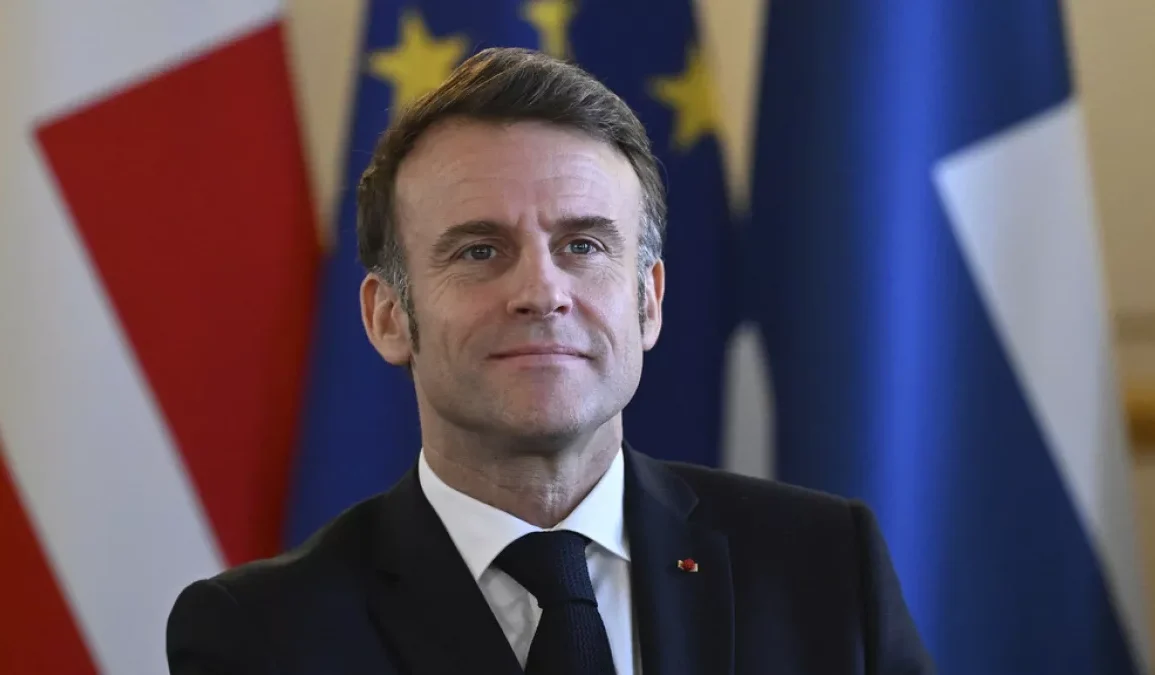French President Emmanuel Macron announced on Wednesday that France is considering extending the protection of its nuclear arsenal to its European allies, while also cautioning that the continent must prepare for the possibility that the United States may not “remain by our side” in the ongoing war between Ukraine and Russia.
“I’ve decided to open the strategic debate on the protection by our deterrence of our allies on the European continent,” Macron stated during a live broadcast on his official social media channels.
He emphasized the importance of Europe continuing its support for Ukraine while also strengthening its own defense capabilities.
Addressing France’s nuclear capabilities, Macron reaffirmed the country’s commitment to its independent deterrent. “Our nuclear deterrence protects us, it is complete, sovereign, French from end to end,” he said. “This protects us much more than many of our neighbors.”
Macron further clarified that any decision regarding the use of France’s nuclear arsenal would remain solely under national authority.
“Whatever happens, the decision has always remained and will remain in the hands of the president of the Republic, commander of the military,” he added.
In response to Macron’s remarks, Russian Foreign Minister Sergey Lavrov accused him of making direct threats against Russia.
“If he considers us a threat, he calls a meeting of the chiefs of general staff of European countries and Britain, says that it is necessary to use nuclear weapons, prepares to use nuclear weapons against Russia, this is, of course, a threat,” Lavrov said during a news conference on Thursday.
Macron also warned that Europe is “entering a new era” and that standing idly by in the face of Russian aggression would be “folly.”
“The United States, our ally, has changed its position on this war, is less supportive of Ukraine and is casting doubt on what will happen next,” Macron said. He added, “I want to believe that the United States will remain by our side, but we need to be ready if that were not the case.”
While reaffirming France’s commitment to NATO and its partnership with the U.S., Macron stressed that France must take further steps to strengthen its own “independence in matters of defense and security.”

He announced plans to host a meeting with European leaders in Paris next week to develop a strategy for achieving “durable peace.” This could potentially involve deploying peacekeeping troops to Ukraine “once peace has been signed” to deter future Russian aggression.
Macron’s comments follow recent remarks by Germany’s likely next chancellor, Friedrich Merz, who has advocated for discussions between France and the United Kingdom—Europe’s two nuclear-armed nations—on expanding nuclear protection for the continent.
However, current German Chancellor Olaf Scholz urged a measured approach, cautioning against prematurely sidelining U.S. nuclear deterrence commitments.
“We are joined together with each other in NATO. There are very specific rules on this and what is particularly important is what we have in terms of nuclear sharing, which is organized in Germany. I believe that this should not be given up, that is the common view of all central parties in Germany,” Scholz said at a press conference in Brussels on Thursday.
Macron has previously alluded to the idea of Europe taking greater responsibility for its own defense. In an interview with Portuguese TV station RTP last month, he said, “If my [fellow European leaders] want to proceed towards greater autonomy and a capacity for deterrence, well we must open that discussion.”
He reiterated this stance on Monday in an interview with French newspaper Le Parisien, in comments later confirmed by the Élysée Palace. “Europeans who wish to deepen dialogue with us [on the question of nuclear deterrence] could … be involved with [the French military’s] deterrence exercises,” Macron stated.
His speech on Wednesday came shortly after a high-stakes summit with Ukrainian President Volodymyr Zelensky and British Prime Minister Keir Starmer. The meeting followed a tense encounter between Zelensky and U.S. President Donald Trump in the Oval Office.
A select group of nations is collaborating on a plan to bring an end to the fighting, with the intention of presenting it to the United States, Starmer revealed.
Macron provided further details in an interview, disclosing that France and the United Kingdom have proposed a month-long limited ceasefire in Ukraine.


